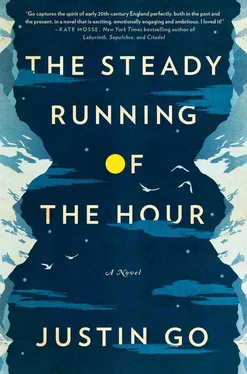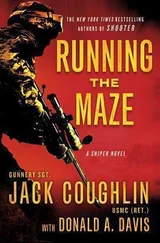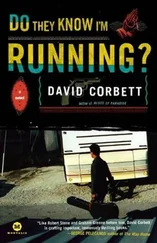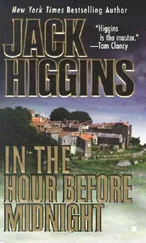2 November 1916
Patience Trench
Somme, France
The misery begins long before the attack. The nights grow long and longer still, the days only a gray smoke of clouds and chilling rain. The rain begins in October and does not cease for three weeks. The soldiers can hardly remember the sun.
The ground becomes its own galaxy of wretchedness, a cesspool of failed ambition. Land that begins as green fields and neat villages is pulverized by explosive shells for days and weeks and months. All relics and histories of civilization sink back into the earth, pummeled into dirt or dust, divided and subdivided into finer particles and finally fused with icy rain into a single sucking gray morass, the binder and fixative of this chance apocalypse.
The mud is everything. It is contagious, the destiny and endpoint of all mankind. The mud coats and replaces all things until men no longer believe in anything else, until they can stare with wonder at any surface that has survived, clean and immaculate. The frontispiece of a King James Bible. A silk scarf, still faintly scented with perfume. If the soldiers take out these objects to admire, they will also become tainted, so they preserve them inside their tunics or haversacks as long as they can.
In the last week the cold snaps into frost, the tumbling rain and slush hardening to snowflakes drifting westward. A dry stinging wind. The pools in the shellholes crust with an inch of ice. One morning the men crawl out from their sleeping quarters, shelves in the trench wall curtained with a waterproof sheet, and when they look over the parapet toward the front line all is blanketed in white.
Ashley stands on a fire step sweeping no-man’s-land with his collapsible periscope. At intervals he blows warm air onto his gloved hands, cupping them tightly. He wishes it would snow more, ten times more, until the pitiful ridge across no-man’s-land gleamed as white as the Weisshorn. It must be a few hundred miles from here, but it feels like ten thousand.
Ashley shuts the periscope and comes down the stairs into company headquarters.
— Hunting season is over, Ashley says. If we couldn’t get forward in the slop, we shan’t get forward in this.
Jeffries shakes his head. — I wouldn’t be certain. Brass hats will want to straighten the lines before we settle in for winter. And they’ll want the Empress.
— Impossible.
— We’re long past impossible.

Two days later they receive their orders to attack. The battalion is to travel by night to Patience Trench, arriving at the position well before dawn. From there they will attack the following morning. B Company will be in the second wave.
Their target is a German fortification called Empress Redoubt, a prehistoric burial mound rising dramatically from a bog of icy mud. The white chalk of the mound’s summit has been shaped by months of shelling into a queer humanoid projection: to the staff officer who named the redoubt, it resembles the figure of the Empress of India in her youth. The enemy has fortified the mound into a maze of barbed wire and dugouts and tunnels and concrete pillboxes; the British general staff claims the redoubt is an essential artillery observation point that must be seized.
In truth it is useless to both armies. But it is the only landmark in an ocean of mud and the enemy holds it. The crumbling chalk and rusting wire of the redoubt look down upon the British every morning, upon subalterns inspecting troops at dawn stand-to, upon staff officers eyeing the position with field glasses. Since July the British have attacked the redoubt four times, failing each time at great cost.
The soldiers now believe the Empress to be German.
The evening before they go forward, Ashley asks his servant Mayhew to clean his revolver. Private Mayhew is a stocky man from Wiltshire who joined the army because he thought it would be easier than dairy farming. He lopes among the trenches in an odd shuffle, never looking another man in the eye when he can avoid it. But Private Mayhew wears the 1914 star. He fought at Mons and Loos, and the other soldiers say he has survived too many battles to ever be killed now. Ashley does not like Mayhew personally and finds him a poor servant, but Mayhew is a crack shot and an experienced soldier, and orderlies fight side by side with their officers. So Ashley keeps him on.
Mayhew takes the revolver from Ashley. He murmurs the name Patience Trench, giving a low whistle.
— Patience Trench, Mayhew repeats. Hoped I’d never see it, sir. Worst of the worst, they say. Chum of mine come out of there last week. Not any kind of trench, he said, just shellholes strung together. Nowhere to kip but in the mud—
Ashley smiles. — Look on the bright side, Mayhew. We shan’t be there but a few hours.

The battalion begins its march shortly after supper, the sky well darkened in the November blackness. They travel by a sunken road flooded with icy water and dead horses. The road has been photographed by German airplanes and is printed on German trench maps of the sector in red ink. German artillery officers who have never laid eyes upon the road know it intimately, raining explosive shells on every curve and rise with pinpoint accuracy, night and day.
The road is a channel of misery and there is no other way forward.
Ashley marches at the front of his platoon, an electric torch in hand, the muck lapping at his knees. Small bergs of blue ice bob in the channel, the water pockmarked by the tumbling rain. The soldiers slog forward at a crawl. They are all heavily laden, carrying rifles and haversacks and shovels, the bodies draped with bandoliers and water bottles and bombs. Some of the men have added equipment on their shoulders: iron pickets, coils of barbed wire, drums of Lewis gun ammunition. They duck under sagging telephone wires that have been strung and restrung zigzag above the sunken road to hold taut. The men have no waders. Their feet are wet and painfully cold, but they suffer with little complaint. A few of them are singing.
— Could be worse, one man says.
— How’s that?
— We could be going to Patience Trench.
The column arrives at a blockage in the road. A horse has fallen into a trap of mud, a deep crater filled with tacky gray sludge. The horse is sunk nearly up to its shoulders. The driver has unyoked the animal from its wagon and is coaxing it forward, but he cannot get it out of the mire. The horse brays and snorts, its shoulders thick with foaming sweat, its legs skittering hopelessly for footing. With every motion the horse sinks further down, with every suck of air.
— She’ll never make it, Ashley tells the driver. You oughtn’t let her suffer like that.
— He’s a stallion, sir. A strong brute. He might get out yet—
— Bollocks.
Ashley watches the horse struggle, stirring up the mud with its forelegs only to collapse further down. A captain from the Durhams arrives from the other direction and halts his soldiers behind the wagon. He comes around the cart and Ashley salutes.
— That horse is drowning, the captain says. What’s the holdup?
The captain does not wait for an answer. He draws his automatic pistol, approaches the channel of mud carefully and levels his pistol at the horse’s head, aiming at the base of the brain, behind the eyes and below the ears. The captain fires. The horse jerks and its neck collapses. It goes on sinking with a soft gurgle, its eyeballs huge and grotesque, the fine musculature of its neck tense and rigid. The driver stands stupidly by the road, watching the dead animal. The captain orders Ashley’s men to push the wagon to the side of the crater. It is impossible to move the horse.
Читать дальше













